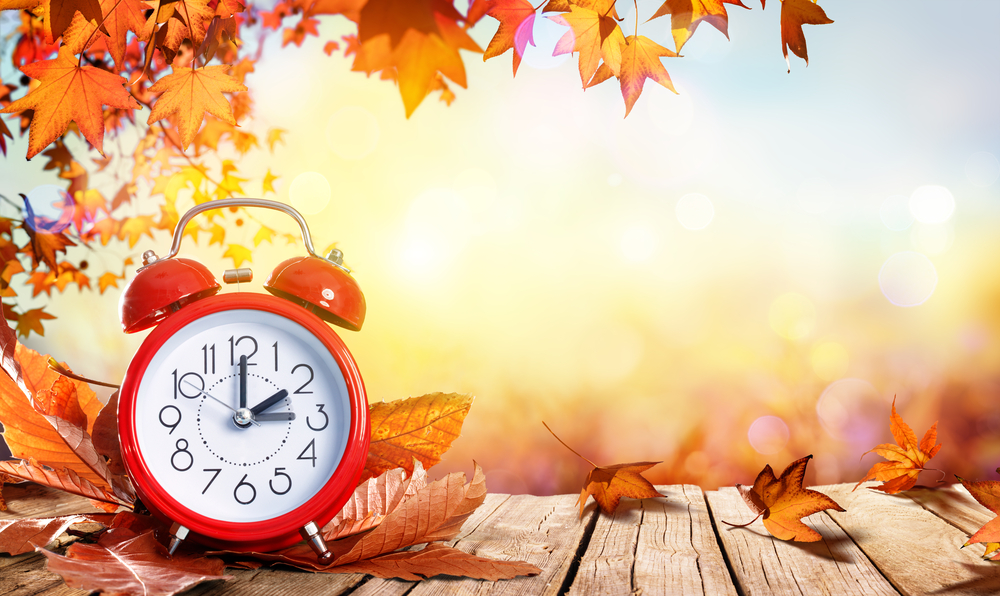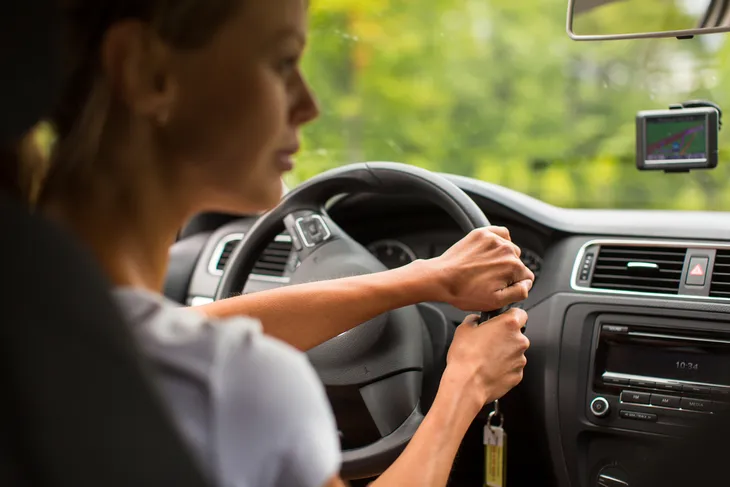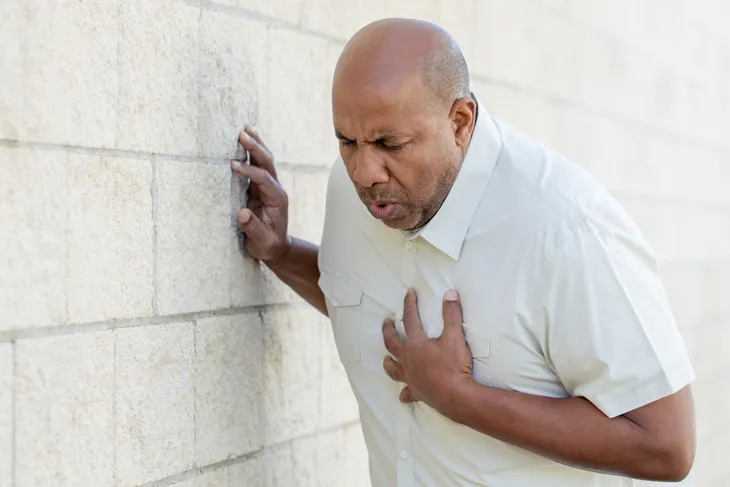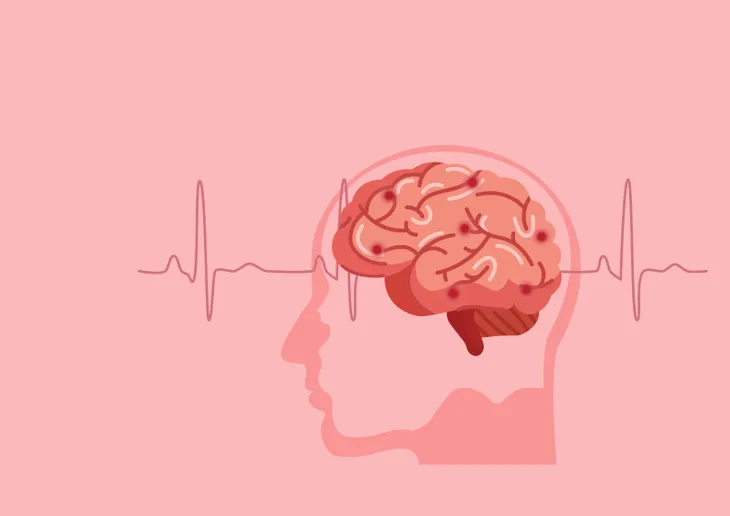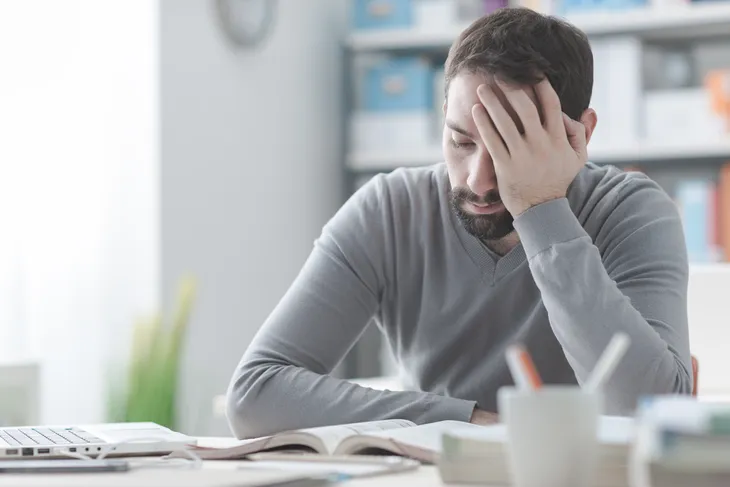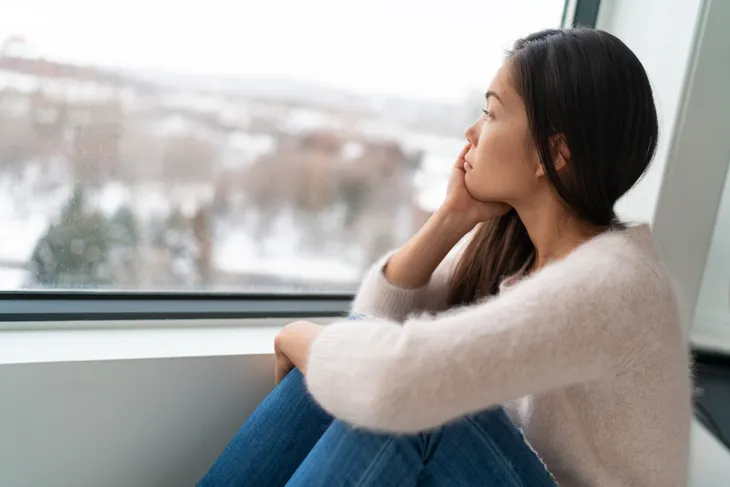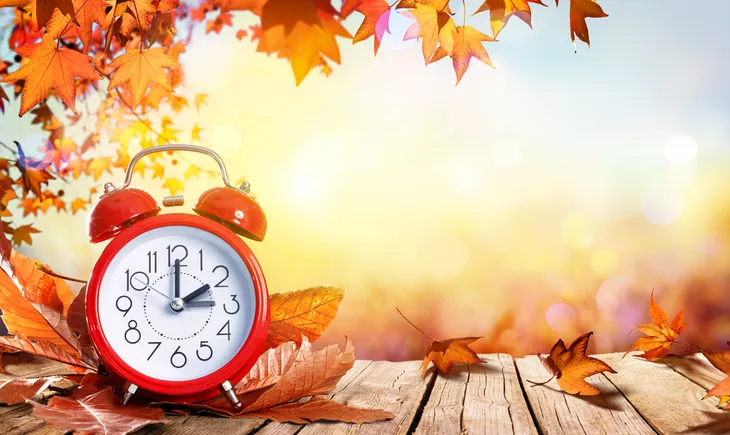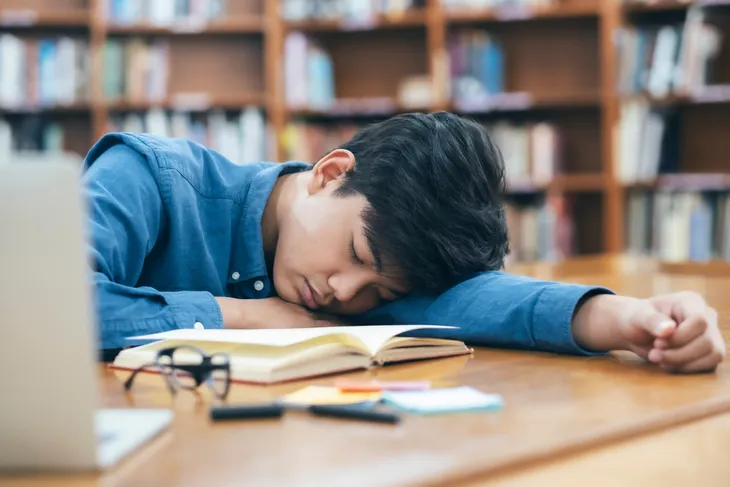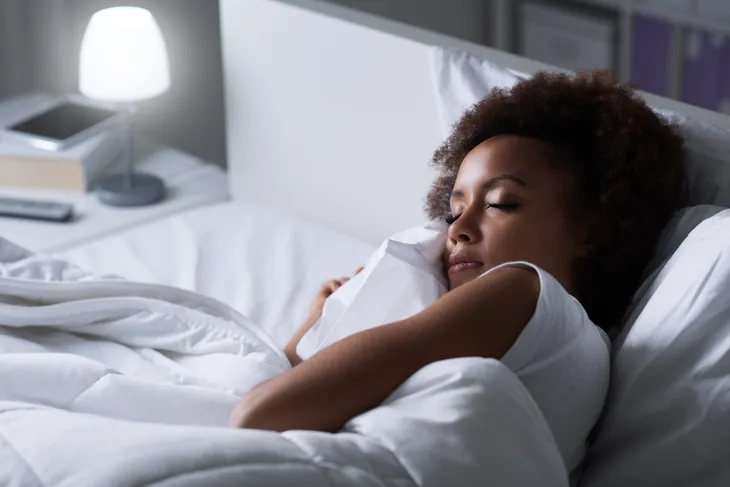- Daylight saving time occurs twice a year and is a longstanding tradition created by Benjamin Franklin to conserve energy.
- In the spring our clocks “spring forward” and then in the fall we turn them back again. While it’s a slight time change, it can have a huge affect on our internal circadian rhythm.
- Research shows this time change affects human health in various ways, such as an increase in heart attacks, strokes, poor cognitive function, and even creates appetite changes.
Even though daylight saving time (DST) gifts us with an extra hour of sleep each fall, it might not be a complete gain. At least not when it comes to our health. An extra hour of sleep in the fall is certainly better than losing an hour in the spring. However, both can seriously impact on our physical and mental health.
From an increase in heart attacks and strokes, to more car accidents, DST takes a huge toll on the humans. There is a reason people are so divided on this long standing tradition. To learn more about DST and its impact, here’s a list all the health effects of daylight saving time…
Increase in Car Accidents
According to an article from CBC, the clocks falling back in fall can actually be dangerous or fatal for pedestrians walking during morning rush hour. A U.S. study showed the probability of being hit by a car on foot is actually three times higher than normal after the clock rolls back, explained the article.
The reason, noted the CBC, is that drivers have adjusted their brains to DST and don’t automatically drive more cautiously to account for the lower light conditions in the mornings. Research also found that losing an hour of sleep in spring caused dramatic increases in traffic accidents from lack of alertness behind the wheel.
Increase in Heart Attacks
Daylight saving obviously takes a toll on our sleep which then affects our mental and cognitive abilities. We’ve all experienced a slow, groggy morning after a poor night’s sleep. But it can actually impact our heart health as well.
A 2019 report published in the Journal of Clinical took the time to analyze seven separate studies with more than 100,000 participants. Their findings showed an increased risk of having a heart attack in the weeks following DST. This was the case for both fall and spring DST transitions, notes Global News.
More Likely to Have a Stroke
WebMD references a 2015 study published in Sleep Medicine which found that people are more likely to have a stroke immediately after daylight saving. Researchers compared the rate of strokes during the week after DST to the rate of strokes two weeks before or after.
The exact increase was 8-percent in the first two days after the shift. In addition to this, they found that people with cancer were 25-percent more likely to have a stroke during this time than any other time of the year. And people 65 were 20-percent more likely to experience a stroke.
Trouble Falling Asleep
Melatonin is a hormone your body produces in the darker hours t0 trigger sleepy-time. When you have more daylight in your daily routine from the clock springing forward, your body may be tricked by this and cause you to have trouble falling asleep at your usual time.
One way to “synchronize” your sleep clock again is to take a low dose of melatonin to help you get sleepy even when the sun is still above the horizon, suggests ABC News. That way, you can get up at a regular time as well. Melatonin has also been found to be effective for jet lag symptoms.
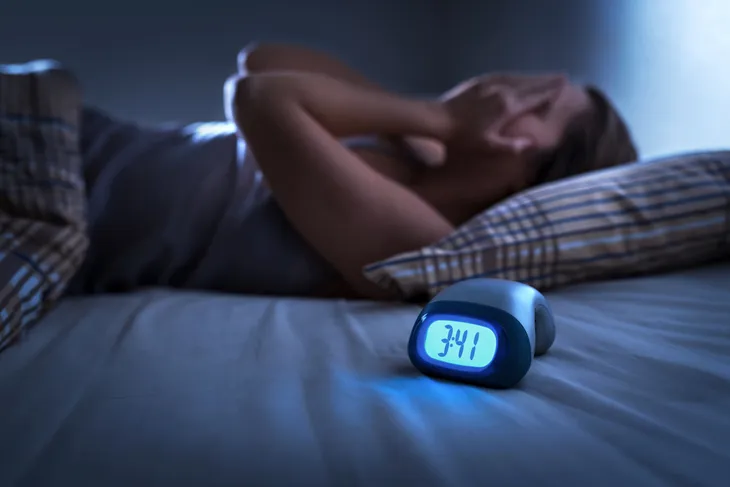 Tero Vesalainen / Shutterstock
Tero Vesalainen / ShutterstockAffects Decision-Making
Suddenly losing an hour can have a big impact on people’s ability to think clearly and make wise decisions. This is why there is typically a spike in workplace injuries, medical errors, and car accidents after DST in the spring, says Sabra Abbott, MD, assistant professor with the Center for Circadian and Sleep Medicine at Northwestern University’s Feinberg School of Medicine when talking to AARP.
“In general, sleep deprivation removes the frontal lobe functions in our body – that’s the part of the brain that keeps us in check and from doing things we shouldn’t do,” explains Abbott to the source. “The less sleep you get, the more likely you are to give into impulses” and make poor choices.
Negatively Impacts Memory and Focus
Ever tried to write a test or even just focus at work after a bad sleep? It usually doesn’t go over so well! This is because sleep is very important to our cognitive function. A poor night’s sleep can have a hugely negative impact on our memory, attention span, and focus. Experts warn people to expect to be more distracted and less productive in the days following DST.
AARP refers to a study published in the Journal of Applied Psychology which found a sharp increase in “cyberloafing.” This term describes people using the internet for personal use during work hours on the Monday after a time change. “When we sleep, a lot of critical tasks happen in our brain,” says Melissa Lipford, MD, a neurologist and sleep specialist at the Mayo Clinic to AARP. “We need good deep sleep so the next day we can multitask, learn new tasks and pay attention.”
Appetite Changes and Cravings
People might notice they are more hungry in the week after a time change. This is likely because we start eating our meals an hour later than what we’re used to, notes AARP. But hormones fluctuating in the brain are also to blame. “Even a small sleep deficit increases the hormone ghrelin — which makes you hungry — and suppresses the hormone leptin, which helps you feel satisfied after you eat,” writes the source.
When we are hungry and tired, we’re more likely to make poor food choices. You might find yourself reaching for unhealthy foods like pizza or doughnuts. This is because “when you are sleep deprived, you tend to make fewer healthy choices,” notes Lipford to AARP.
More Irritable
Not surprisingly, when we don’t get a good night’s sleep we tend to be more irritable the next day. It’s totally normal and unfortunately a common occurrence following DST. AARP states it’s difficult for people to regulate their emotions when they don’t get good quality sleep. They are more likely to be irritable, impatient, and snap at others.
It even occurs in people who are held to a very high standard in our community, such as judges. These individuals are supposed to be impartial, but AARP notes they can be moodier in the days after DST. In fact a 2016 study found that sentences given on the Monday after DST were 5-percent longer than the other two Mondays.
Heightens Mood Disorders
In addition to our cognitive function and physical health, DST can affect our mental health as well. The American Academy of Sleep Medicine (AASM) points out that a transition into and out of DST is associated with sleep disruption, mood disturbances, and people taking their own lives.
Health.com references a 2017 study published in Epidemiology which looked at 185,000 hospital contacts for depression. Their findings showed an increase in hospital visits for depression by 11-percent.
“Especially for individuals susceptible to being anxious or depressed, this change in time can trigger an episode of depression or anxiety,” says David Merril, MD, an adult and geriatric psychiatrist and Director of the Pacific Brain Health Center at the Pacific Neuroscience Institute to Health.com. He adds that DST can exacerbate or increase disorders like seasonal affective disorder (SAD) when the days are shortened.
Less Seasoned Humans
A study in Current Biology suggests that while we are mentally aware of the time changes associated with DST, our bodies aren’t. The study claims that our bodies never truly adjust to that hour forward and back.
The study found that “DST severely affects our seasonal timing” and humans are seasonal creatures concerning birth rates and mortality. However, the study acknowledges that our seasonal beheavior may have decreased in the past 60 years due to a reduction in natural light-dark patterns.
Who’s Most Affected by DST?
Any person can be affected by DST, however certain groups are likely to feel it than others. One prime example of this is teenagers. According to the AASM, many teenagers already deal with chronic sleep issues so their risk of sleep deprivation following a DST change is high.
Another group that is high risk are shift workers. The AASM points out that some of these workers are already dealing with shift work disorder, a type of circadian rhythm disorder. It causes them to get approximately 4-hours less sleep than the average person and have overall poor sleep quality.
Also, people who live on the US West Coast are more likely to feel the shift than those who live on the East Coast, notes BuzzFeed News. And individuals with certain conditions, such as autism, SAD, and bipolar disorder, are also more vulnerable to daily changes.
Tips on How to Better Adjust
There is no denying DST is a huge adjustment for everyone – no matter what. Thankfully, there are some little things we can all do to make the transition a little smoother. Ramiz Fargo, MD, medical director for the Sleep Disorders Center and a sleep medicine doctor at Loma Linda University Health suggests to WebMD that people go to bed earlier. All it takes is 15 to 20-minutes for a couple days before DST.
Other easy tips we can all try at home are to avoid caffeine and alcohol because both cause poor sleep. The source also recommends limiting screen time before bed, daytime naps, and heavy meals within a couple hours of bedtime.
